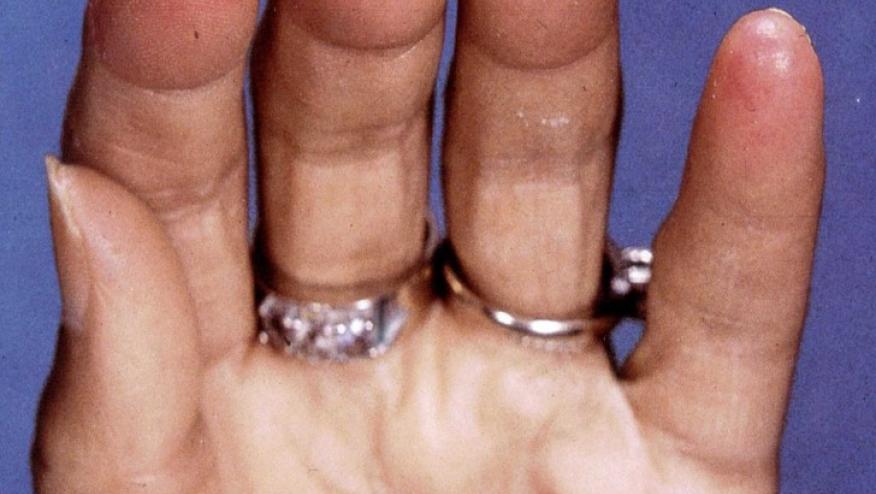VEGF121-Fibrin as a Potential Therapy for Skin Ulcers in Systemic Sclerosis Save

The etiology of systemic sclerosis (SSc) remains unclear, but appears to involve complex pathogenic interactions between the immune system, the vasculature and fibrotic processes. Better understanding of such interactions could lead to discovery of new therapeutic approaches, and requires appropriate animal models.
The University of California at Davis chicken lines 200 and 206 are one such animal model displaying all hallmarks of SSc. While SSc is characterized by uncontrolled overexpression of vascular endothelial growth factor (VEGF), this results in chaotic vessels and the cutaneous ulcerations.
In this animal model study, it was hypothesised that local administration of VEGF121-fibrin and consequent cell demanded release of VEGF from the fibrin matrix would overcome the uncontrolled VEGF expression found in SSc, and induce sufficient angiogenesis to heal and prevent ischemic ulcers.
Ninety-one early and late ischemic comb and neck skin lesions of UCD-206 chickens were treated locally with VEGF121-fibrin, fibrin alone, or left untreated. After 1 week of treatment the clinical outcome was assessed. Angiogenesis was studied by immunofluorescence staining of vascular markers quantitatively analyzed using TissueQuest.
Overall, 79.3% of the VEGF121-fibrin treated lesions showed clear clinical improvement, whereas 71.0% of fibrin treated controls and 93.1% of untreated lesions had deteriorated.
The study results suggest that VEGF121 from fibrin matrix induces controlled angiogenesis by differential regulation of VEGFR-1 and VEGFR-2 expression, shifting the balance towards the pro-angiogenic VEGFR-2. The study shows the potential of covalently conjugated VEGF-fibrin matrices for the treatment of ischemic lesions such as fingertip ulcers. The long-term effects and potential side effects of VEGF121 will require further clinical study.









If you are a health practitioner, you may Login/Register to comment.
Due to the nature of these comment forums, only health practitioners are allowed to comment at this time.